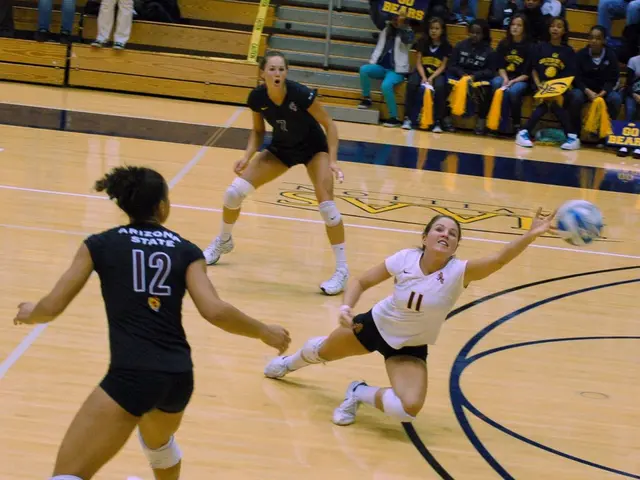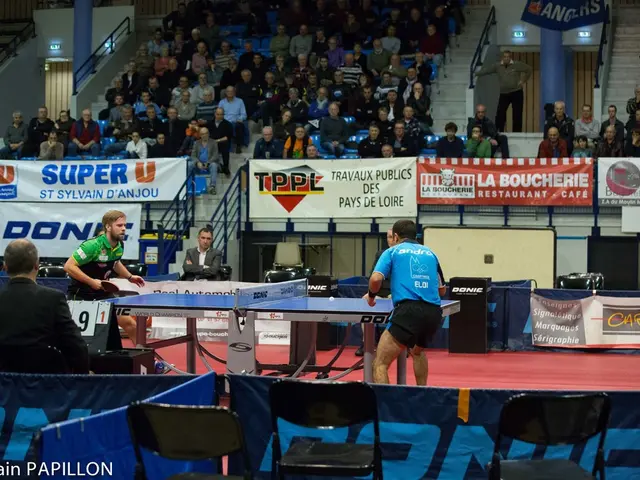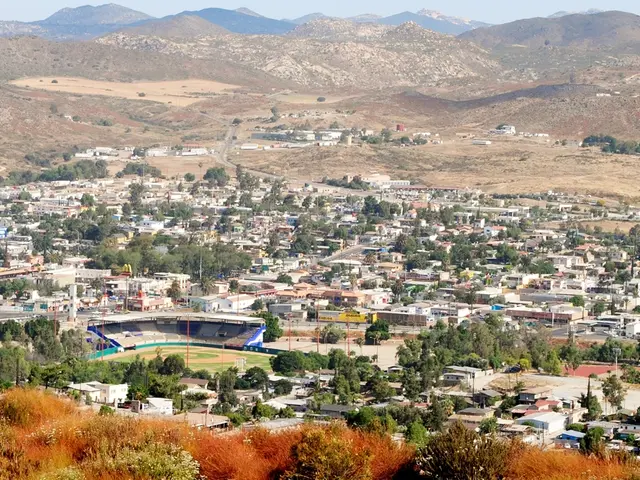Supreme Court Receives Electoral Data from CNE in Venezuela, U.S. Alters Previous Endorsement of González
Unleashing the Tug-of-War: Venezuela's Fractious Presidential Election
Mexico City, Mexico, August 6, 2024 - The dramatic aftermath of Venezuela's July 28, 2024 presidential election continues to grip the nation, as the country's National Electoral Council (CNE) President Elvis Amoroso delivers the contentious electoral evidence requested by the Supreme Court of Justice (TSJ).
President Nicolás Maduro's demand for the TSJ to clarify and validate the election's process, followed by a three-day ultimatum, comes in the wake of hardline opposition coalition leader María Corina Machado's allegations of massive fraud by Maduro's administration.
The CNE declared Maduro the winner with a narrow lead of 51.95% (6.4 million votes), while US-backed opposition candidate Edmundo González claimed 43.18% (5.3 million votes). However, the opposition disputes these figures, demanding release of the CNE's detailed results broken down by voting center, a demand that has gone unheeded by the CNE.
In the meantime, the opposition has set up a parallel domain, boasting more than 80 percent of voting records from polling stations gathered by its electoral witnesses on election day. Diego Arrún, a representative from the opposition, claims that "the materials provided by the opposition were forged," while the CNE maintains an abundance of caution to protect the legitimacy of its documentation.
The United Socialist Party of Venezuela, supporting Maduro, has thus far avoided publishing its own tallies. The CNE data, when received, will be meticulously reviewed by the TSJ within a 15-day window.
All 10 candidates, as well as legal representatives of the 37 political parties that appeared on the ballot, have been summoned to appear before the court in the coming days. Court president Caryslia Rodríguez warned of legal consequences for non-compliance.
González and Machado, buoyed by the opposition's efforts, unilaterally declared the former as "president-elect," urging the police and armed forces to follow his orders. The US, however, appears to have hedged its position, with US State Department Spokesperson Matthew Miller indicating that the Biden administration has not recognized González as president.
The diplomatic scenario remains fractious, with leftist presidents Lula da Silva (Brazil), Petro (Colombia) and López Obrador (Mexico) rejecting foreign interference and emphasizing the need for all parties to pursue a Venezuelan-led solution. Furthermore, these governments have called for greater transparency regarding the results.
In response to González's and Machado's provocative statements, Venezuelan Attorney General Tarek William Saab opened a criminal investigation into both for charges including usurpation of official functions and instigation of insurrection. The CNE remains the only body constitutionally authorized to declare a winner in electoral contests.
Domestic tensions simmer, with widespread protests reportedly leaving over a dozen dead in the wake of the election. As calm appears to have returned to the country's streets, bloody "guarimba" protests are a distant memory.
Loyal supporters of Maduro rallied, dressed in red, making their way from the city center to the Miraflores Presidential Palace. The opposition held its own rallies, with Machado addressing a modest crowd in the upper-class neighborhood of Las Mercedes in eastern Caracas.
Rewritten by Ricardo Vaz in Caracas.
Extra Insights:
- The Carter Center, an American non-governmental organization that monitors elections worldwide, found the official results "statistically impossible" to reconcile with authenticated precinct records collected by the opposition.
- The Venezuelan government, under Maduro, has retained power through control of state institutions in the face of diplomatic isolation and international condemnation, leaving the opposition in a severely restricted political environment with limited recourse to challenge results.
- The opposition's efforts to reject the CNE's results have been labeled as a coup attempt by President Maduro. However, the opposition alleges widespread electoral fraud and a biased electoral authority and judiciary.
- Despite reported inconsistencies in the electoral process, Venezuela's National Electoral Council (CNE) has declared President Nicolás Maduro the winner of the presidential election, with a narrow lead of 51.95%.
- US-backed opposition candidate Edmundo González disagrees with the CNE's figures, claiming 43.18% of the votes, and the opposition has set up a parallel domain to challenge the results.
- The CNE's data is being meticulously reviewed by the Supreme Court of Justice (TSJ) within a 15-day window, a move that follows President Maduro's demand for the TSJ to clarify and validate the election's process.
- Opposition leader María Corina Machado has accused Maduro's administration of massive fraud, a claim that the CNE has been reluctant to address publicly.
- The opposition's rejection of the official results has been described as a coup attempt by President Maduro, while the opposition alleges widespread electoral fraud and a biased electoral authority.
- The diplomatic situation remains tense, with the United States and several leftist presidents calling for greater transparency regarding the results and emphasizing the need for a Venezuelan-led solution.
- Amidst domestic tensions, there have been reports of bloody protests and migration due to war-and-conflicts and policy-and-legislation surrounding the election, while crime-and-justice and accidents, including car-accidents and fires, have also been on the rise.









